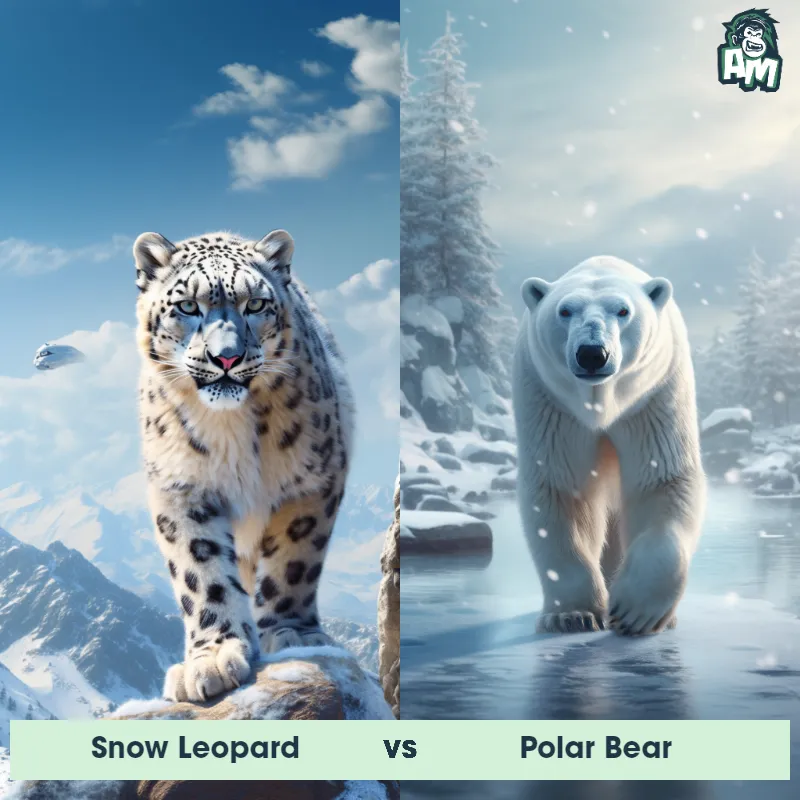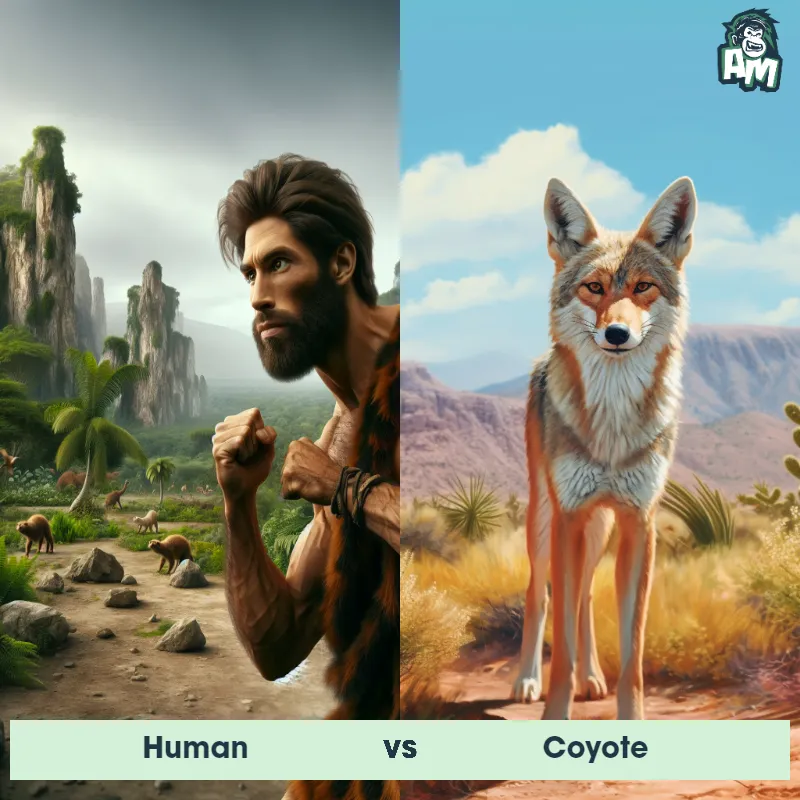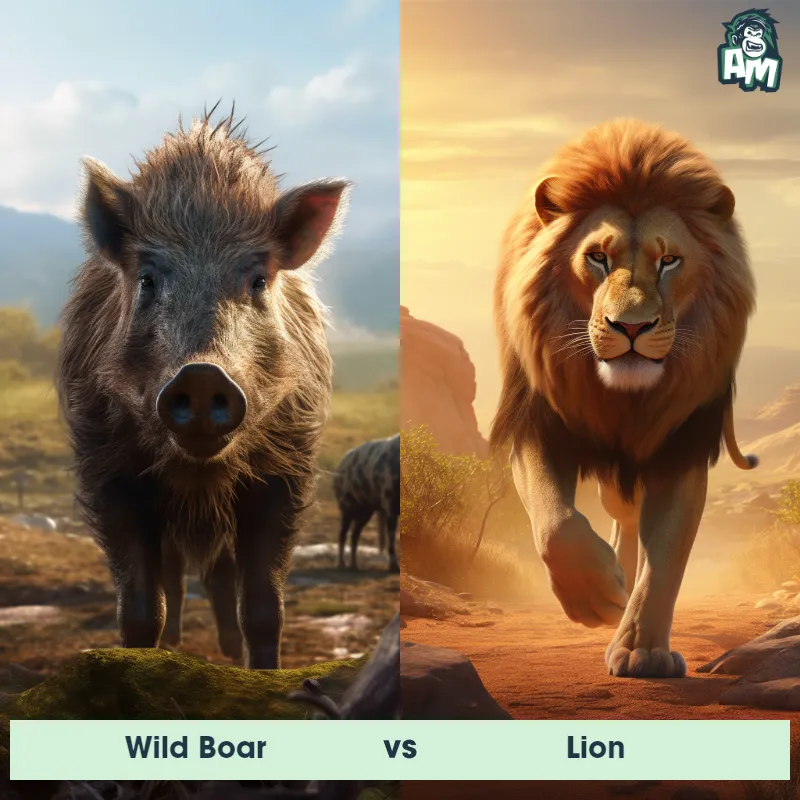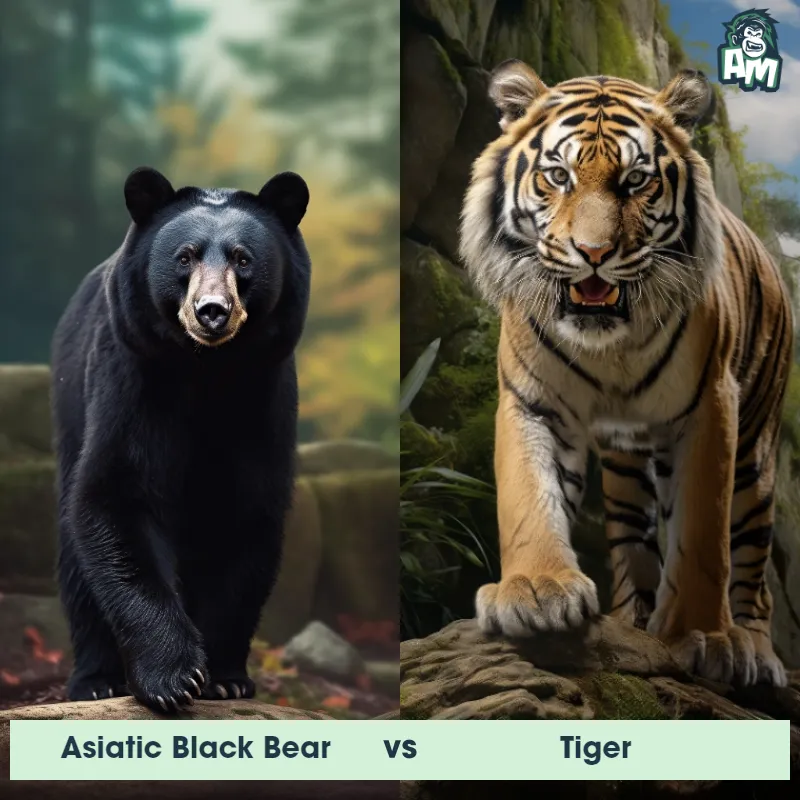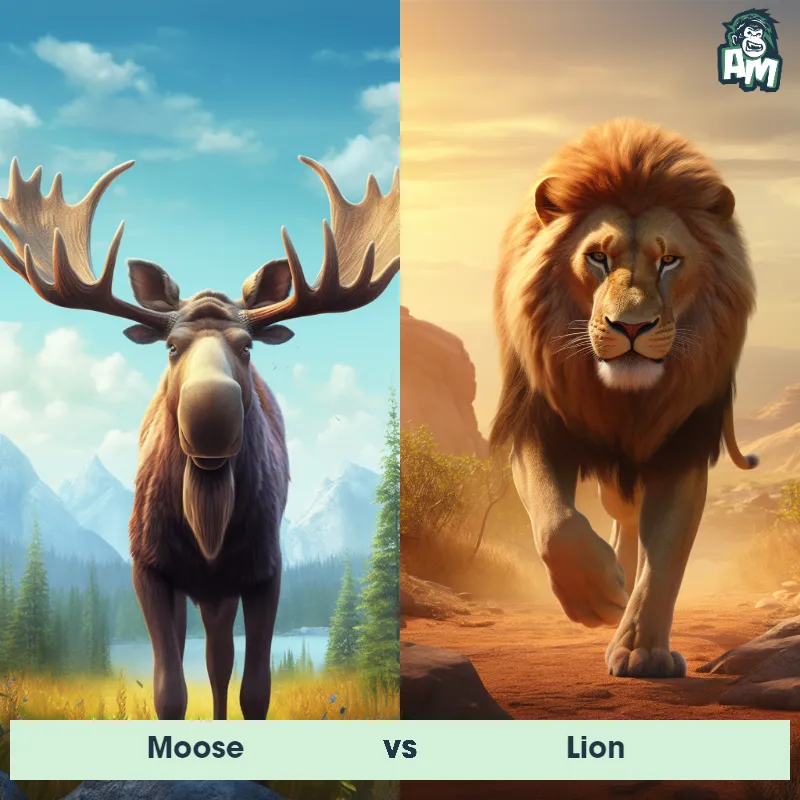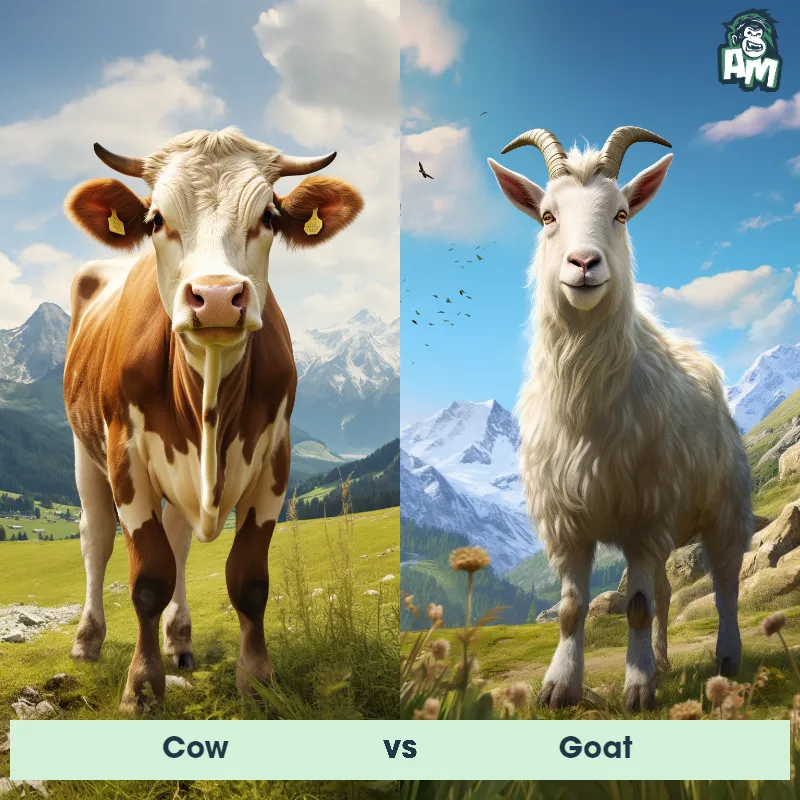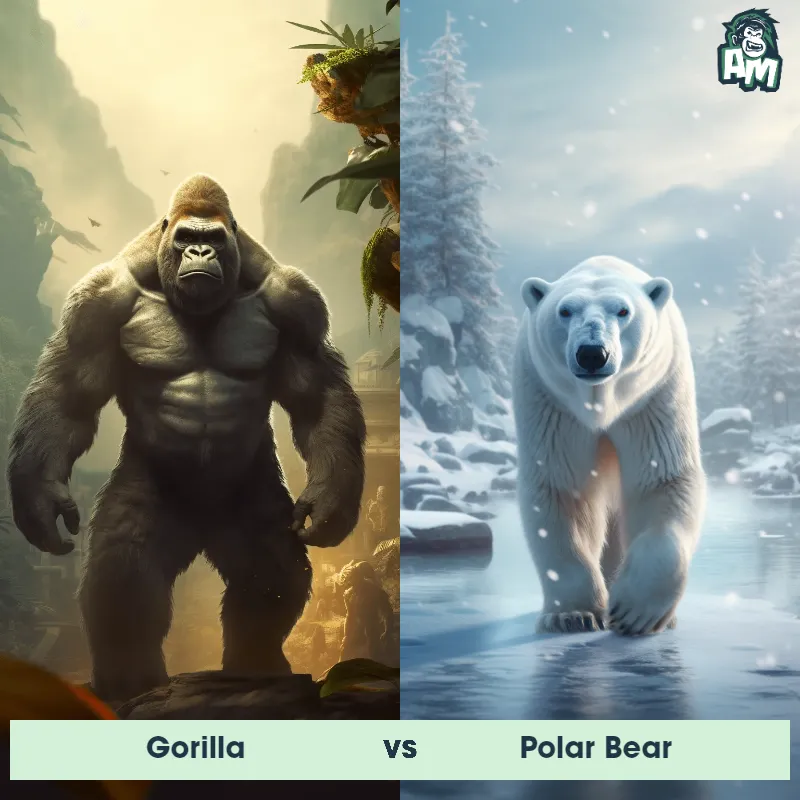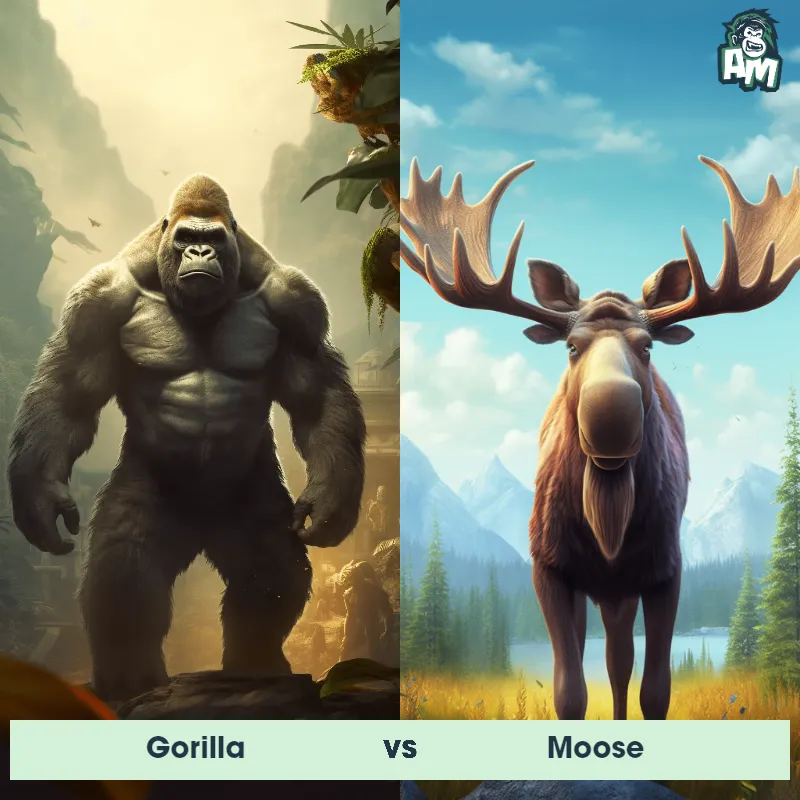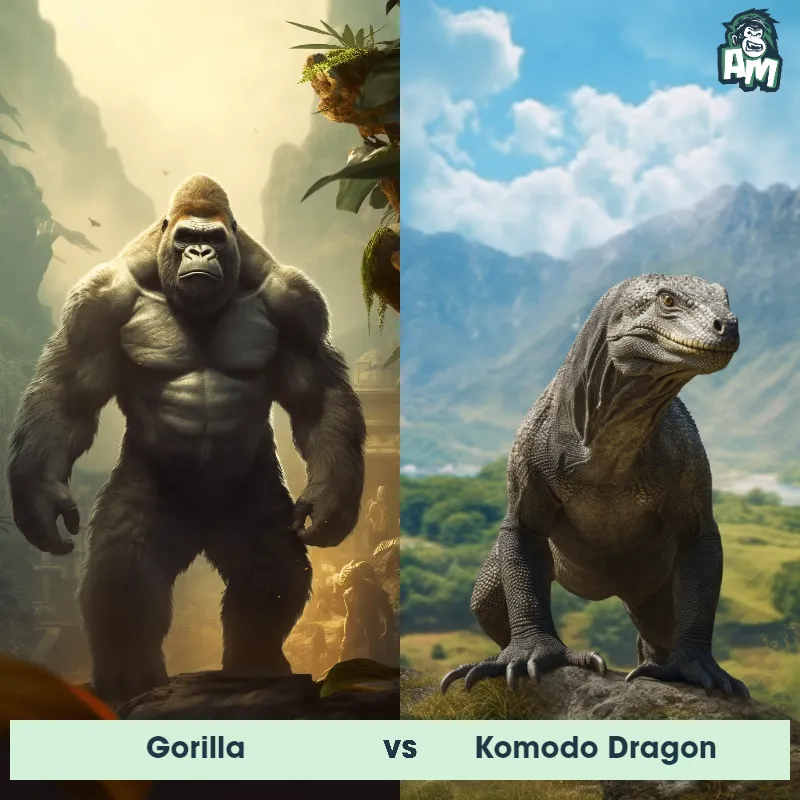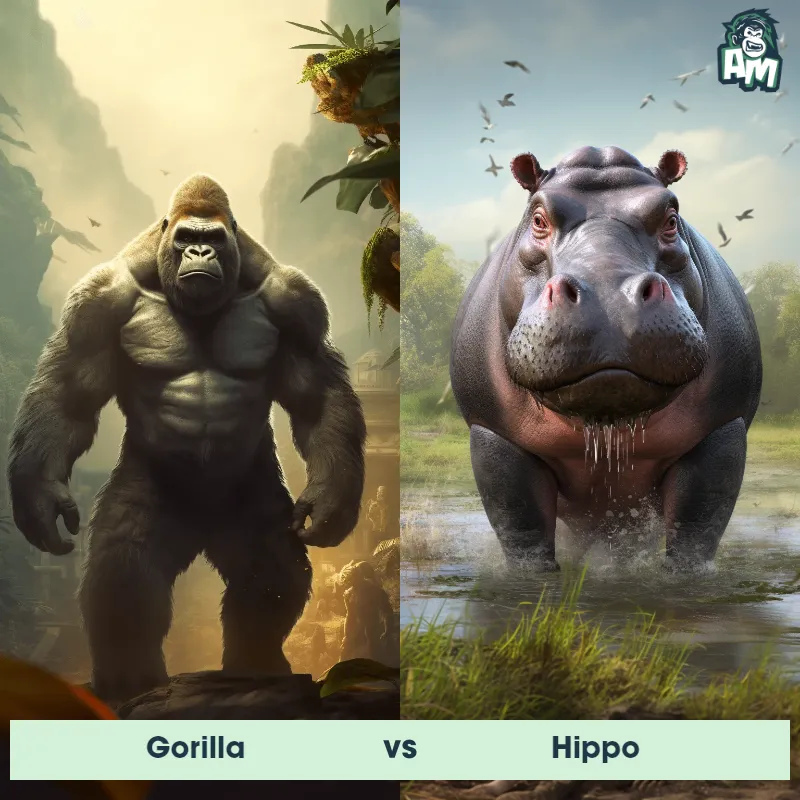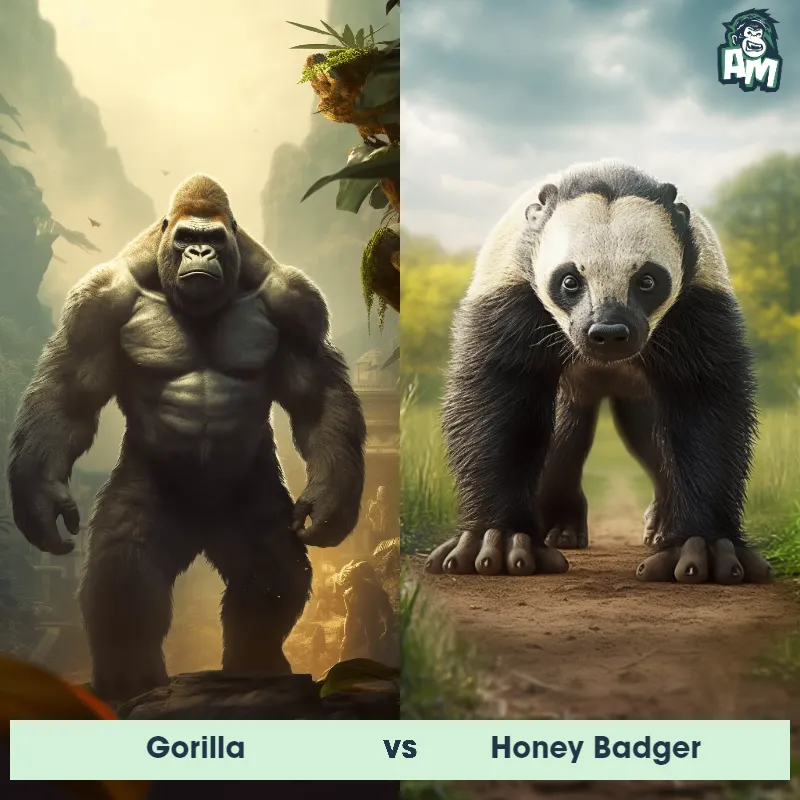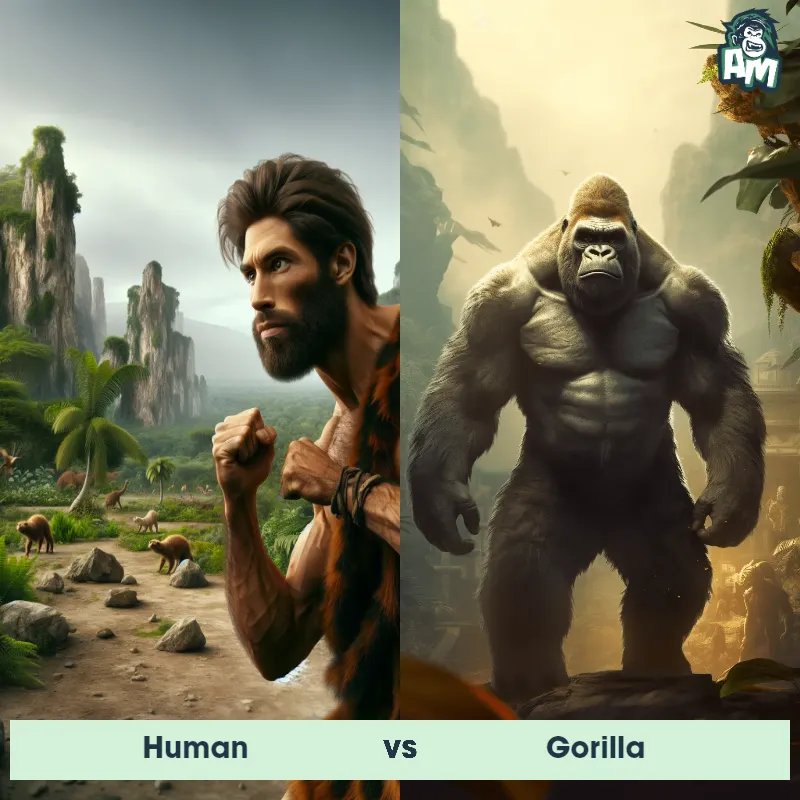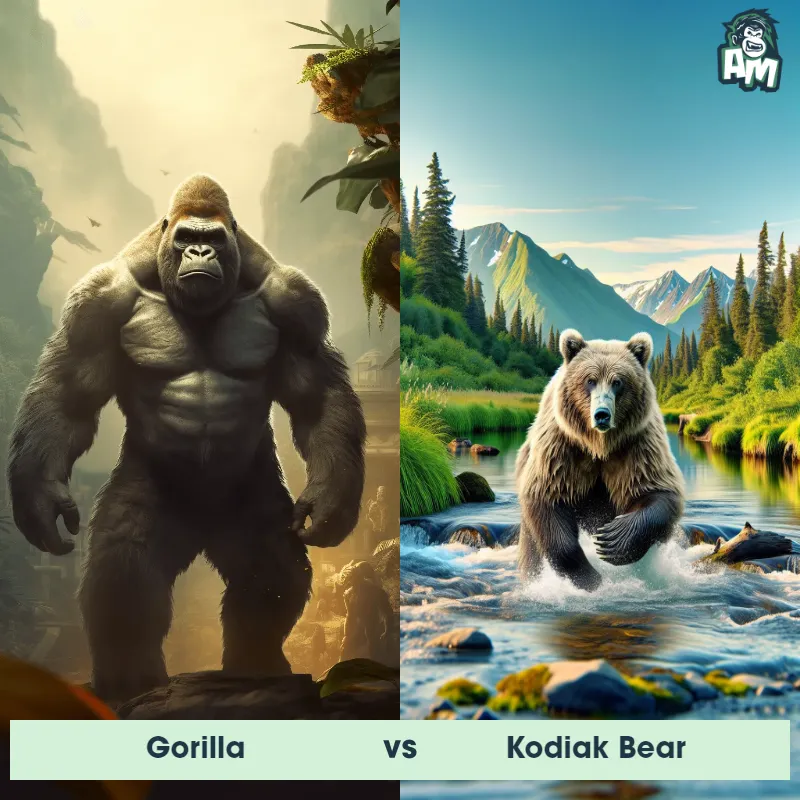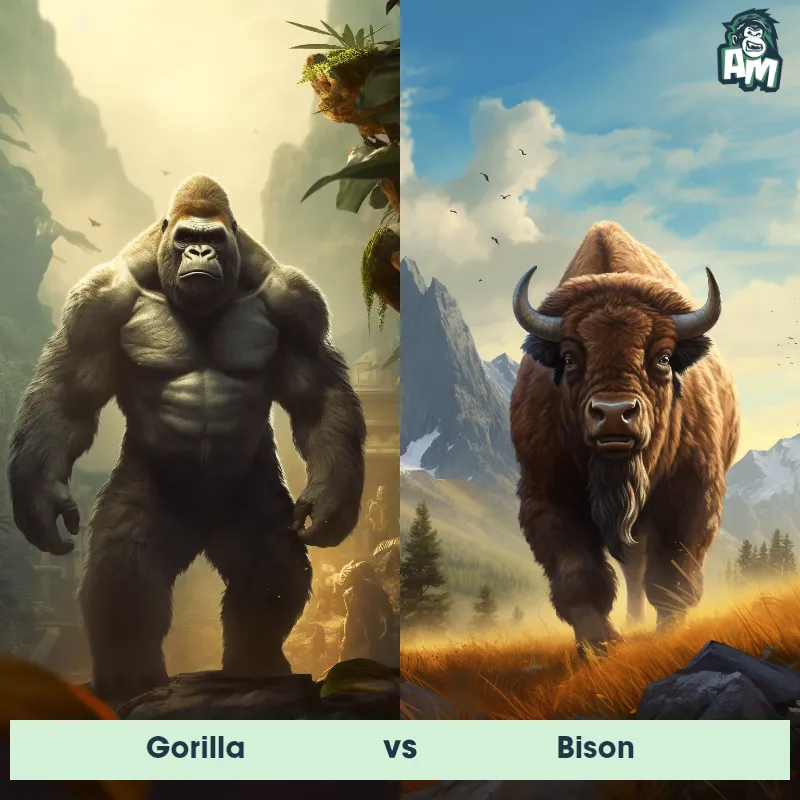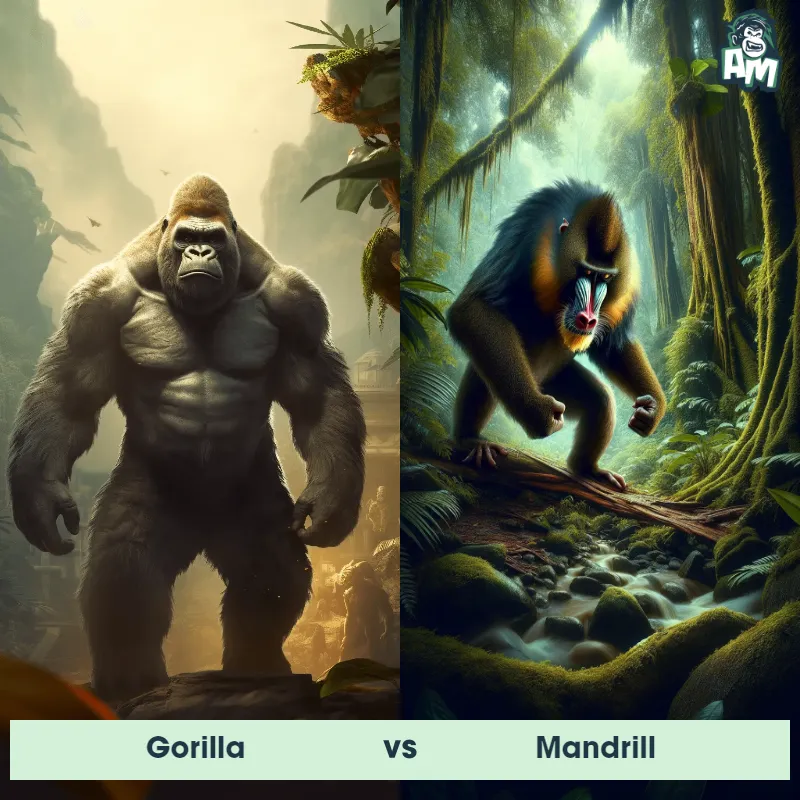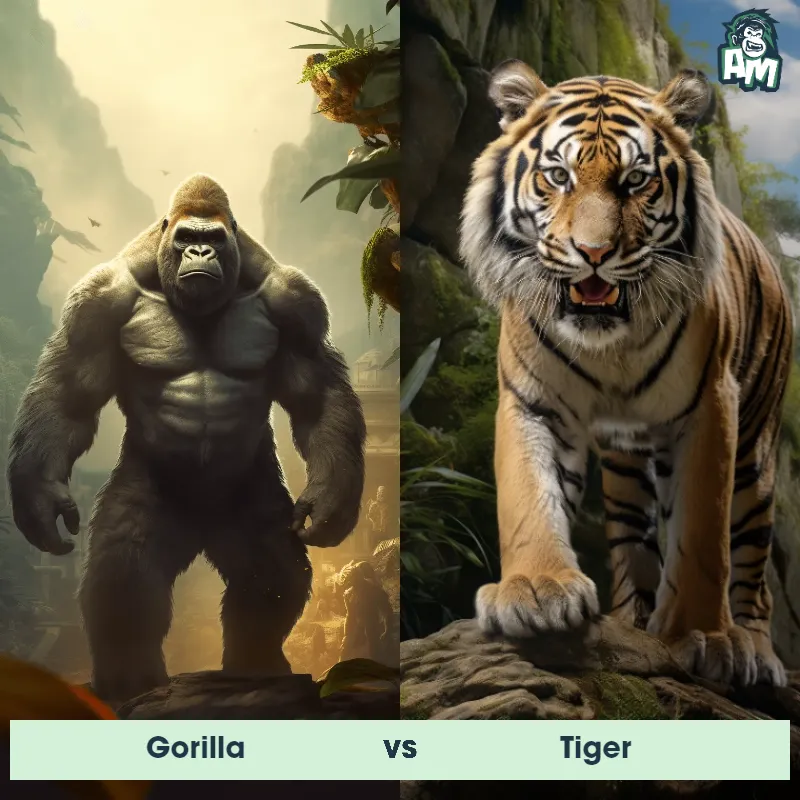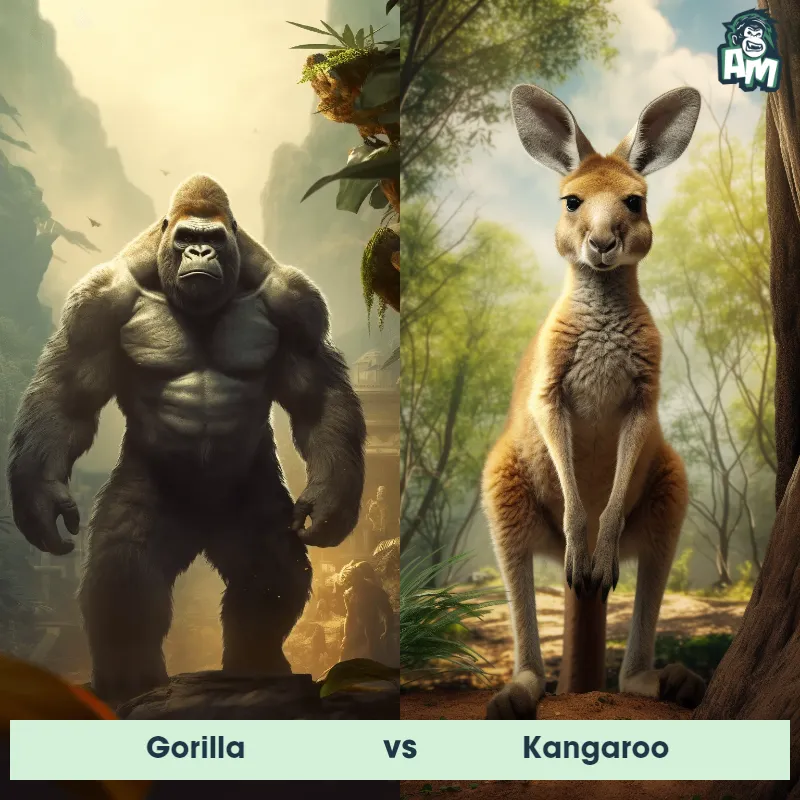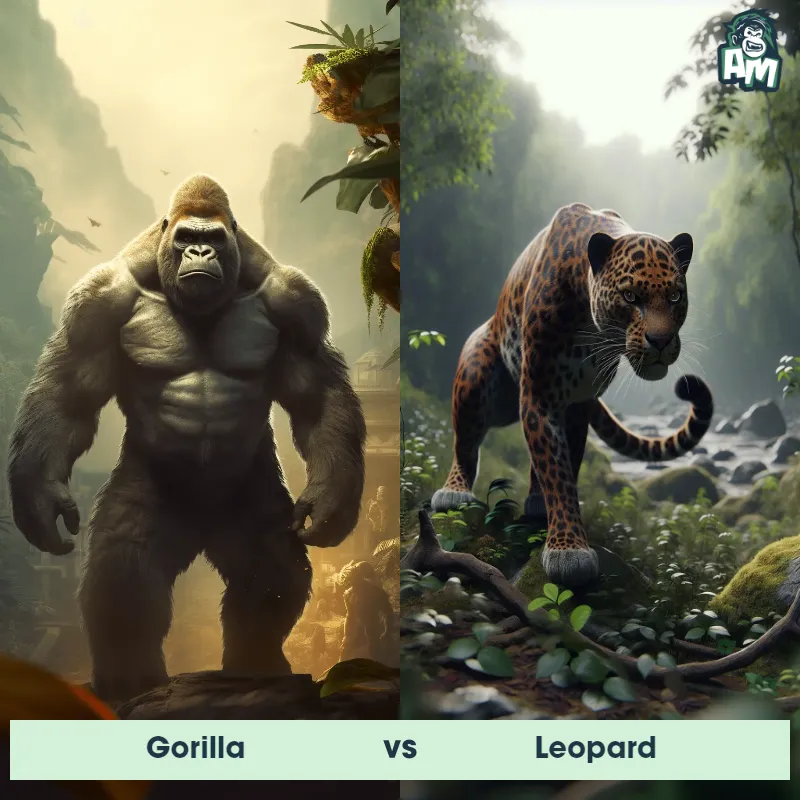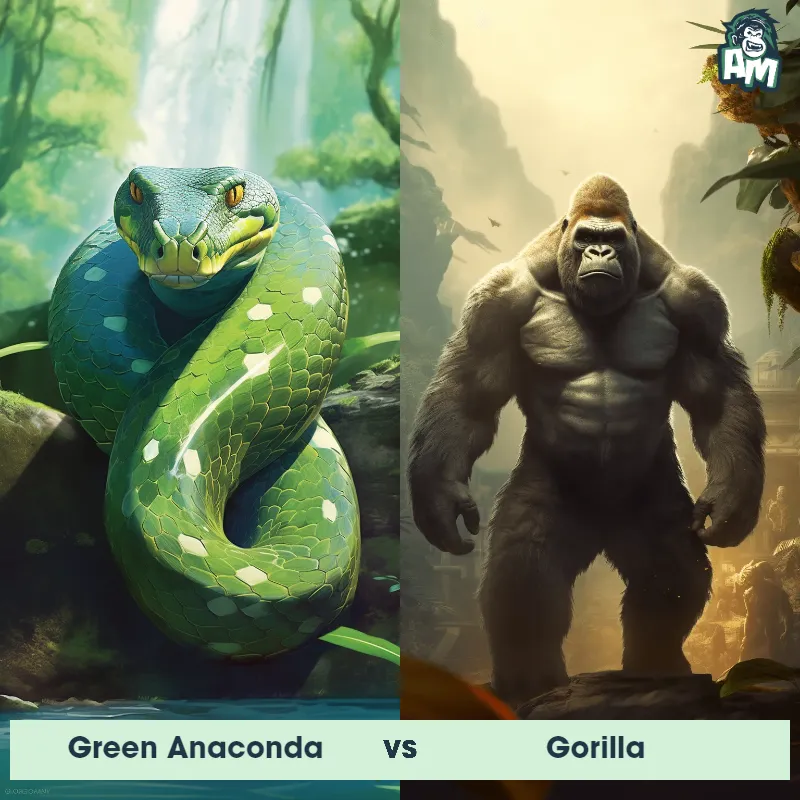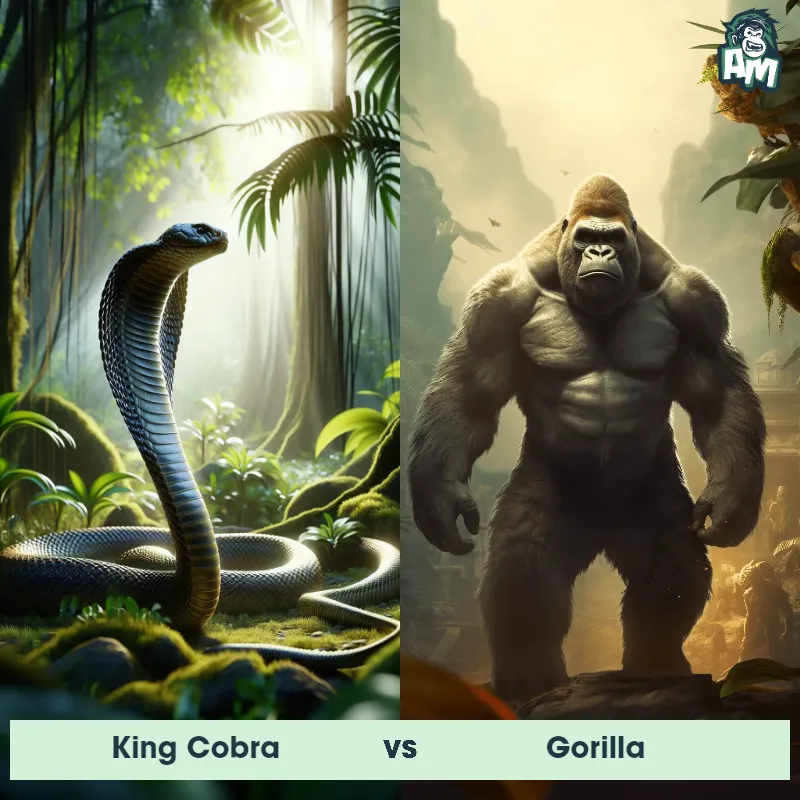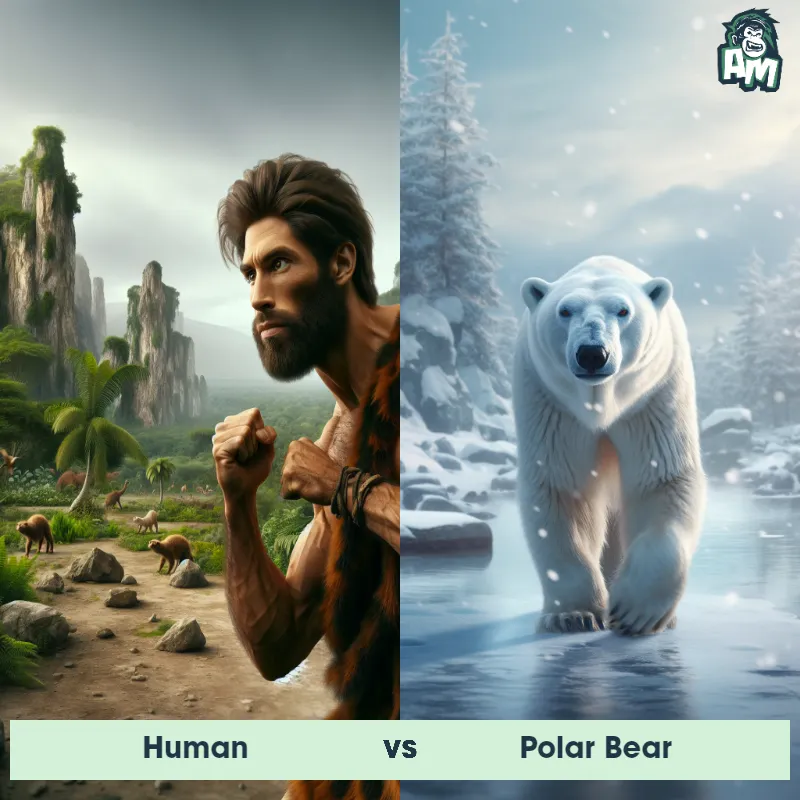Mountain Gorilla vs ChimpanzeeSee Who Wins
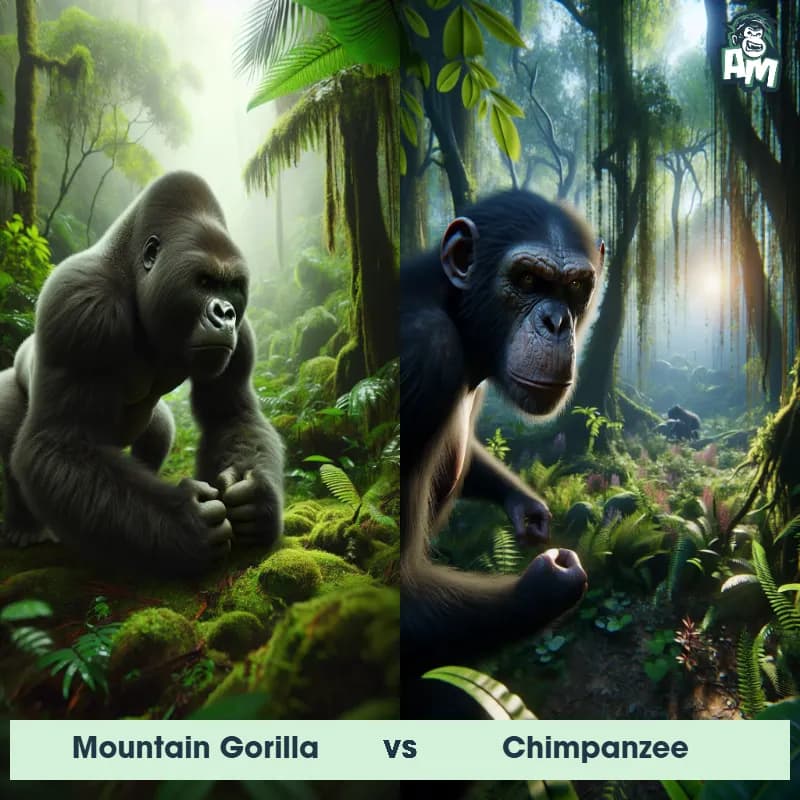
Welcome to the ultimate showdown between two of the strongest primates in the animal kingdom. In one corner, we have the powerful Mountain Gorilla, known for its sheer size and strength. And in the other corner, we have the agile Chimpanzee, known for its speed and intelligence. It's sure to be a thrilling battle between these two incredible creatures.
Contender 1: Mountain Gorilla
The Mountain Gorilla, scientifically known as Gorilla beringei beringei, is one of the two subspecies of the eastern gorilla. They are known for their large size, with males reaching up to 6 feet tall and weighing around 400 pounds. They have a muscular build, long arms, and a thick, black fur that helps them endure the cold temperatures in their mountainous habitats. These gentle giants are primarily herbivorous, feeding on a variety of plants. They live in small, close-knit groups led by a dominant silverback male, and their population is mainly found in the dense forests of the Virunga Massif in East Africa.
Fun Fact: The Mountain Gorilla shares about 98% of its DNA with humans, making them one of our closest living relatives in the animal kingdom.
Contender 2: Chimpanzee
The Chimpanzee, a highly intelligent primate and our closest living relative, inhabits the forests and woodlands of central and West Africa. These social creatures possess a robust and muscular build, with an average height of about 3 to 5 feet and a weight ranging from 70 to 130 pounds. Famed for their dexterous hands and opposable thumbs, chimpanzees are remarkable tool users, employing sticks to collect termites and rocks to crack open nuts. They have a keen sense of hierarchy within their communities and communicate using a variety of vocalizations, gestures, and facial expressions.
Fun Fact: One fascinating fact about Chimpanzees is that they have been observed using tools not only for feeding purposes but also for social interaction, engaging in behaviors like leaf clipping, trunk dragging, or throwing rocks as forms of non-verbal communication.
Matchup Stats
| Mountain Gorilla | Chimpanzee | |
|---|---|---|
| Size | Up to 6 feet (1.8 meters) tall | 3 to 5 feet (0.9 to 1.5 meters) |
| Weight | Around 400 pounds (180 kilograms) | 70 to 130 pounds (31 to 59 kilograms) |
| Speed | 25mph (40km/h) | 25mph (40km/h) |
| Key Strength | Powerful upper body | Strong arm and upper body muscles |
| Biggest Weakness | Vulnerable head | Vulnerable to attacks from the back |
Current Votes
Mountain Gorilla vs Chimpanzee
See Who Wins
View More Matches
Looking For More?
Similar Matches
Scientific Stats
| Mountain Gorilla | Chimpanzee | |
|---|---|---|
| Scientific Name | Gorilla beringei beringei | Pan troglodytes |
| Family | Hominidae | Hominidae |
| Habitat | Mountain forests | Forests and woodlands |
| Geography | East Africa (Virunga Massif) | Central and West Africa |
| Diet | Herbivorous | Omnivorous |
| Lifespan | 30 years - 40 years | 40 years - 60 years |
Key Differences between Mountain Gorilla and Chimpanzee
- Fur: Mountain Gorillas have long, thick fur that helps them stay warm in high altitudes, while Chimpanzees have shorter, sleeker fur covering most of their bodies.
- Behavior: Mountain Gorillas are generally more docile and peaceful in nature, while Chimpanzees are known for their curious and playful behavior, often engaging in social interactions and tool use.
- Nose: Mountain Gorillas have wider, broader nostrils compared to Chimpanzees, whose nostrils are smaller and more rounded.
- Face shape: Mountain Gorillas have a broader, flatter face with a prominent sagittal crest on top of their skull, while Chimpanzees have a more narrow and elongated face with a less pronounced crest.
- Arms: Mountain Gorillas have longer and more muscular arms relative to their body size, ideal for swinging through trees, whereas Chimpanzees have shorter arms but with longer fingers for grasping branches.
- Size: Mountain Gorillas are generally larger and heavier than Chimpanzees, with male Gorillas weighing up to 400 pounds, while male Chimpanzees weigh around 100-130 pounds.



